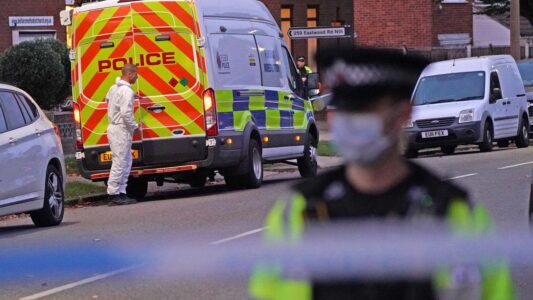
Wave of terrorism in Europe moving towards the United Kingdom
The UK’s terror threat level is likely to be raised and should have been upgraded before the murder of MP Sir David Amess, a former counter-terrorism chief has said.
Nick Aldworth told Sky News that the country is facing a similar situation to 2016 and 2017 with a “slowly developing wave of terrorism in Europe that’s starting to move towards the UK”.
He said authorities faced an “enormous challenge” to identify potential lone-wolf attackers who have been radicalised at home during lockdown.
It comes as counter-terrorism police continue to question 25-year-old Ali Harbi Ali over the murder of Sir David, who was stabbed to death during his constituency surgery in Essex.
Scotland Yard has said the early investigation revealed a “potential motivation linked to Islamist extremism” and it is not seeking anyone else over the death.
The UK’s terror threat level has not changed since the killing on Friday and remains at “substantial”, meaning an attack is likely.
But Mr Aldworth, the UK’s former counter-terrorism national co-ordinator, said he believed the threat level should have been raised to “severe” – meaning an attack is highly likely – several months ago.
The former Met Police chief told Sky News: “My belief is we must be quite close to moving up a threat level back to ‘severe’.
“I’ve been advocating for a long time that the threat level should have probably changed a few months ago.
“My view, from what we’re seeing, is there are similarities this year with what we saw in 2016 and 2017 of a slowly developing wave of terrorism in Europe that’s starting to move towards the UK.”
There were five fatal terror incidents in the UK in 2016 and 2017 including the murder of Labour MP Jo Cox, the Manchester Arena bombing and the attacks at Westminster Bridge, London Bridge and Finsbury Park.
Britain’s intelligence agencies have reportedly warned ministers of a new threat from “lone-wolf” terrorists who were radicalised online while spending months at home during lockdown.
Mr Aldworth told Sky News: “It’s become the new norm within terrorism: people self-radicalising and then deciding to do something about it.
“We live in a democratic society, we don’t live in a surveillance society where the authorities can, without cause, tap your phone and monitor your internet usage.
“It’s an enormous challenge and an enormously resource intensive challenge.”
Mr Aldworth said he understands the number of “active” terror investigations in the UK “hovers at around 800 on a fairly consistent basis”.
“There will be 800 people of significant interest to the authorities,” he said.
“Within that 800, there will be some who are actively attack-planning – they’ll be at the top of that list.”
Ali – the son of a former senior Somali government official – was previously referred to the UK’s Prevent scheme, which is a programme to stop radicalisation, a Whitehall source has said.
However, he is not thought to have been on the radar of the security service, MI5.
Latest Home Office figures show there were more than 6,200 referrals to the Prevent scheme in England and Wales in the year up to March 2020.
Mr Aldworth said there was “a gap in the market” in the lack of referrals from family members.
“Typically about 30% of referrals come from education… about 30% come from the police and about 30% come from a disparate number of places including health,” he said.
“The interesting point is that only between 2-5% come from family and friends and the workplace. Of course, that’s the point you would expect changes in people’s behaviour to be most observable.
“That’s where the gap in the market is.
“A challenge at the moment is Prevent is seen as a police mechanism, whereas actually Prevent is a mechanism for reporting vulnerable people and safeguarding them.”
Home Secretary Priti Patel has said security forces have been watching for people who may have become radicalised online during the coronavirus lockdowns.
She told the BBC’s Andrew Marr Show: “Threats are always there and if you listen to my colleagues, even the director general of MI5, he has spoken publicly about lone actors.
“We’ve seen a lot more of that, at both ends of the spectrum by the way – Islamist and extreme right.”
Source: Sky News





